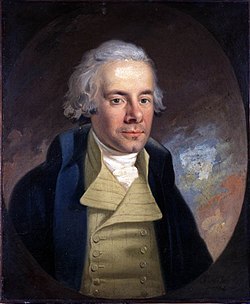William Wilberforce Quote
Both man and woman have their own parts to play in bringing faith to the next generation, and the woman's role is particularly important. How can we ever think that the female sex is inferior when we see the essential responsibility God has given women in this world? Their sensitivity to spiritual concerns seems to be farm more innate and natural than a man's. Mothers and wives often are the medium for our intercourse with the heavenly world, the faithful repositories of spiritual knowledge and wisdom. We should all be careful to avail ourselves of the benefits they have to offer both the present generation and the one that will follow us.
Both man and woman have their own parts to play in bringing faith to the next generation, and the woman's role is particularly important. How can we ever think that the female sex is inferior when we see the essential responsibility God has given women in this world? Their sensitivity to spiritual concerns seems to be farm more innate and natural than a man's. Mothers and wives often are the medium for our intercourse with the heavenly world, the faithful repositories of spiritual knowledge and wisdom. We should all be careful to avail ourselves of the benefits they have to offer both the present generation and the one that will follow us.
Related Quotes
Christians sometimes make themselves into elephants afraid of mice. You have the Creator of the universe on your side; not to mention, you've been given eternal life. 'Whom or what shall you fear?' To...
About William Wilberforce
In 1787, Wilberforce came into contact with Thomas Clarkson and a group of activists against the transatlantic slave trade, including Granville Sharp, Hannah More and Charles Middleton. They persuaded Wilberforce to take on the cause of abolition, and he became a leading English abolitionist. He headed the parliamentary campaign against the British slave trade for 20 years until the passage of the Slave Trade Act 1807.
Wilberforce was convinced of the importance of religion, morality and education. He was involved in causes and campaigns such as the Society for the Suppression of Vice, British missionary work in India, the creation of a free colony in Sierra Leone, the foundation of the Church Mission Society and the Society for the Prevention of Cruelty to Animals. His underlying conservatism led him to support politically and socially repressive legislation, and resulted in criticism that he was ignoring injustices at home while campaigning for the enslaved abroad.
Wilberforce played a central role in the campaign for the complete abolition of slavery and continued his involvement after 1826, when he resigned from Parliament because of health issues. That campaign led to the Slavery Abolition Act 1833, which abolished slavery in most of the British Empire. Wilberforce died just three days after hearing that the passage of the act through Parliament was assured. He was buried in Westminster Abbey, close to his friend William Pitt the Younger.
